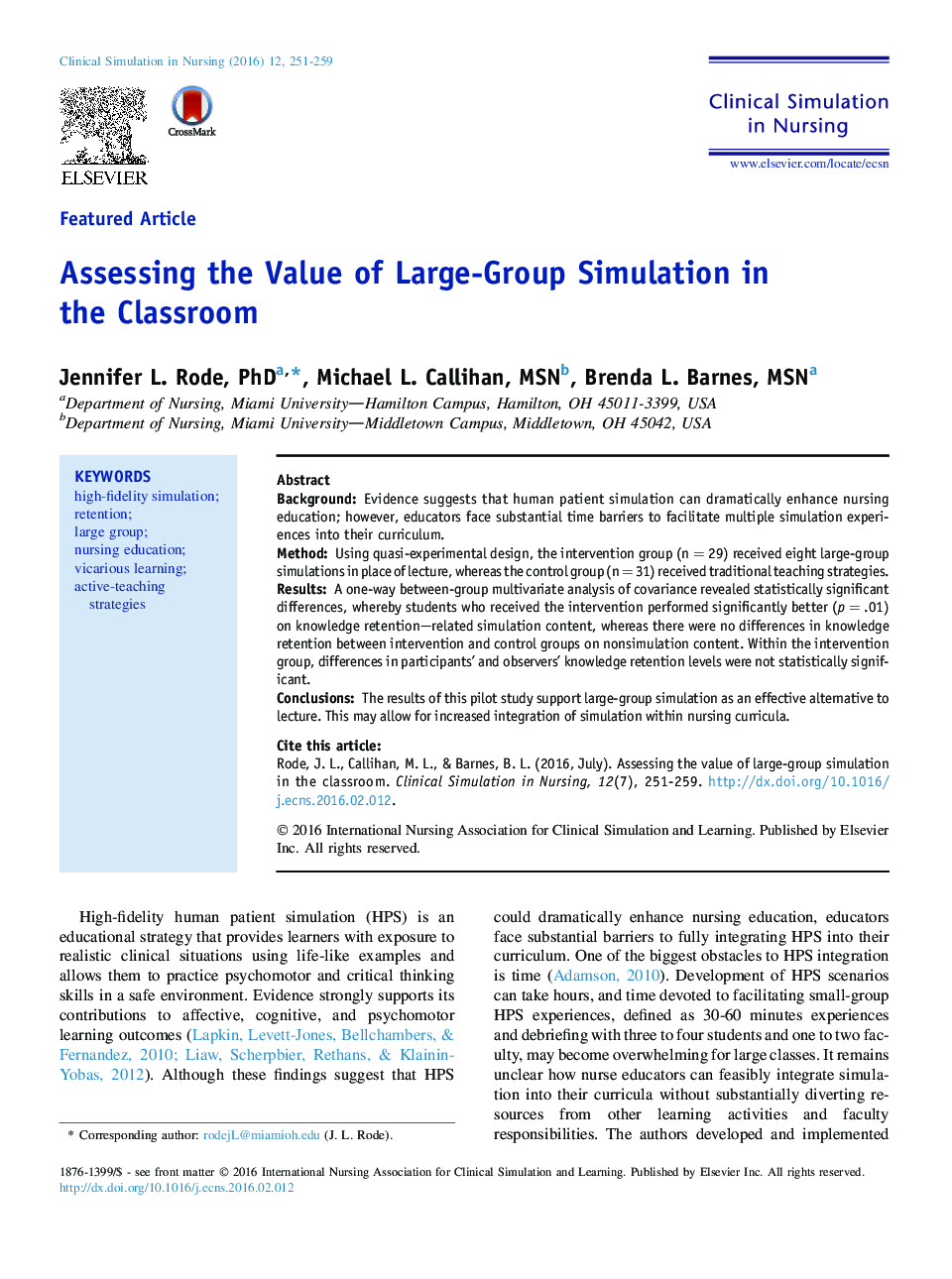| Article ID | Journal | Published Year | Pages | File Type |
|---|---|---|---|---|
| 2646884 | Clinical Simulation in Nursing | 2016 | 9 Pages |
•High-fidelity simulation experiences resulted in increased knowledge retention.•Vicarious learners performed as well as active participants on knowledge retention.•Large-group simulation can be effective and can also reduce faculty facilitation time.
BackgroundEvidence suggests that human patient simulation can dramatically enhance nursing education; however, educators face substantial time barriers to facilitate multiple simulation experiences into their curriculum.MethodUsing quasi-experimental design, the intervention group (n = 29) received eight large-group simulations in place of lecture, whereas the control group (n = 31) received traditional teaching strategies.ResultsA one-way between-group multivariate analysis of covariance revealed statistically significant differences, whereby students who received the intervention performed significantly better (p = .01) on knowledge retention–related simulation content, whereas there were no differences in knowledge retention between intervention and control groups on nonsimulation content. Within the intervention group, differences in participants' and observers' knowledge retention levels were not statistically significant.ConclusionsThe results of this pilot study support large-group simulation as an effective alternative to lecture. This may allow for increased integration of simulation within nursing curricula.
